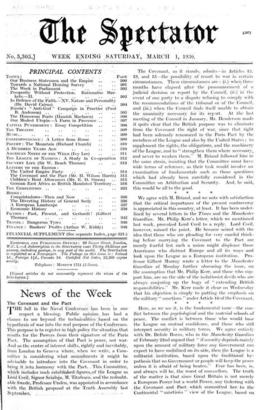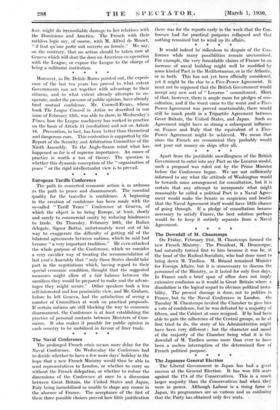Here, as we see it, is the fundamental issue—the con-
flict between the psychological and the material schools of peace. The conflict is between those who would base the League on-mutual confidence, and those who still interpret security in military terms. We agree entirely with Dr. Delisle Burns, who in the Manchester Guardian of February 22nd argued that " if security depends mainly upon the amount of military. force_ any Government can expect to nave-mobilized on its side, then the Leaguels a militaristAnstitution, based upon - the :traditional hy- pothesis that no,G.overnment orpeople will keep the peace unless it is afraid of being beaten." Fear has been, is, and always will be, the worst of counsellors. The truth of the matter is that. since Great Britain is not merely a European. Power but a world: Power, any tinkering with the, .:Cov_enant.-- and pact:: which .committed • her-Jo the -Continental " sanctions " view Of the League, haged on fear, might do irremediable damage to her relations with the Dominions and America. The French with their ruthless logic say, of course, with M. Alfred de Musset, " it faut qu'une porte soit ouverte ou ferm- ee." We say, on the contrary, that no action should be taken now at Geneva which will shut the door on American co-operation with the League, or expose the League to the charge of being a militarist institution.
* * * *

























































